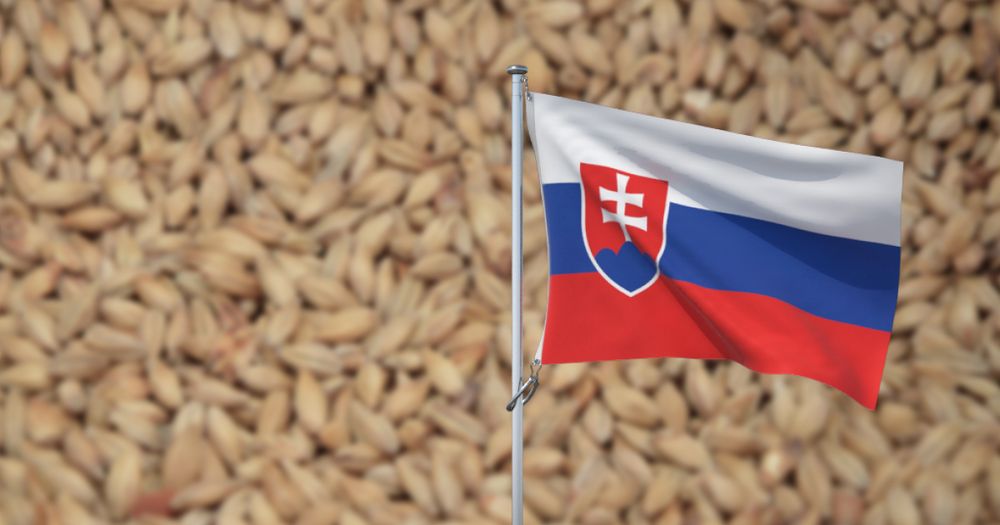If the system of restrictions on agricultural exports from Ukraine proposed by Kyiv works, Slovakia will lift its ban on grain imports

The system of grain export control guarantees proposed by Ukraine needs to be tested. If it proves to be effective, Slovakia will lift its ban on imports of agricultural products. This was stated by Slovak Agriculture Minister Josef Bires, according to the European Commission’s website.
He emphasized that Slovakia’s unilateral ban on imports of Ukrainian agricultural products was a “natural reaction to protect the national market from excessive imports of goods from Ukraine” and a reaction to the European Commission’s lifting of restrictive measures.
“Today Ukraine has made a surprise in the form of some guarantees of control over grain imports on the basis of licenses. I think this (proposal – Ed.) should have been sent in advance. The European Commission should have made some kind of transition period so that we could test this system, check whether it is effective and whether it is a guarantee to prevent uncontrolled imports,” Bires said.
He added that Slovakia will continue its unilateral ban on imports of Ukrainian grain until the system of guarantees from Ukraine is evaluated. The Ministry of Agriculture of Slovakia will also begin to study the effect of Ukrainian guarantees at the national level in cooperation with the financial management and customs.
“We will prepare all the logistics for the inspection. It will take maybe a month, maybe two months, because even there the terms of some kind of mutual confirmation and decision-making vary from five days to a month. This means that every importer who receives a license from the Ukrainian side must receive confirmation from the Slovak side,” explained Biresh.
“We have always expected Ukraine to give this project a guarantee. We (Poland, Slovakia, Bulgaria, Romania, and Hungary – Ed.) will hold a meeting, then consult, and later express our opinion. After all, there is a certain system of disagreements about which system will be used between the Ukrainian and Slovak sides, particularly at the borders. Are there any guarantees that this grain will not slip away somewhere,” he explained and added that Slovakia expected to hold consultations with the five member states, check the operation of the guarantee system, create a transition period, and then Slovakia would be ready to resume imports from Ukraine.
Bires assured that the unilateral measures would not affect the transit of Ukrainian agricultural goods through the “solidarity corridors.” He referred to the information of the European Commissioner for Agriculture Janusz Wojciechowski, who informed the European Commission that the restrictive measures imposed in five frontline countries did not limit the transit of goods from Ukraine. Over the past five months, they have even increased.
Commenting on the lawsuit filed by Ukraine with the World Trade Organization, the Slovakian expressed surprise at the speed of Ukraine’s actions.
“I must admit that the lawsuit surprised me, especially the speed of the procedure. But we will not change our position at this time unless there are guarantees (control of Ukrainian grain imports – Ed.). We can also inform the WTO of our reasons and concerns,” Bires said.
As reported, on September 15, the European Commission refused to extend the temporary ban on imports of Ukrainian wheat, corn, sunflower seeds and rapeseed to five EU countries neighboring Ukraine.
Following this, Poland imposed its own ban. Hungary and Slovakia did the same.
Polish media reported that these three countries also rejected Kyiv’s plan to control agricultural imports.
In May 2023, the European Commission banned imports of wheat, corn, rapeseed, and sunflower from Ukraine to Bulgaria, Hungary, Poland, Slovakia, and Romania at the insistence of these countries. On June 5, the ban was extended until September 15, 2023.
Read also
Wheat in Southern Brazil Impacted by Dry Weather and Frosts
Oilseed Industry. Leaders and Strategies in the Times of a Great Change
Black Sea & Danube Region: Oilseed and Vegoil Markets Within Ongoing Transfor...
Serbia. The drought will cause extremely high losses for farmers this year
2023/24 Safrinha Corn in Brazil 91% Harvested
Write to us
Our manager will contact you soon



